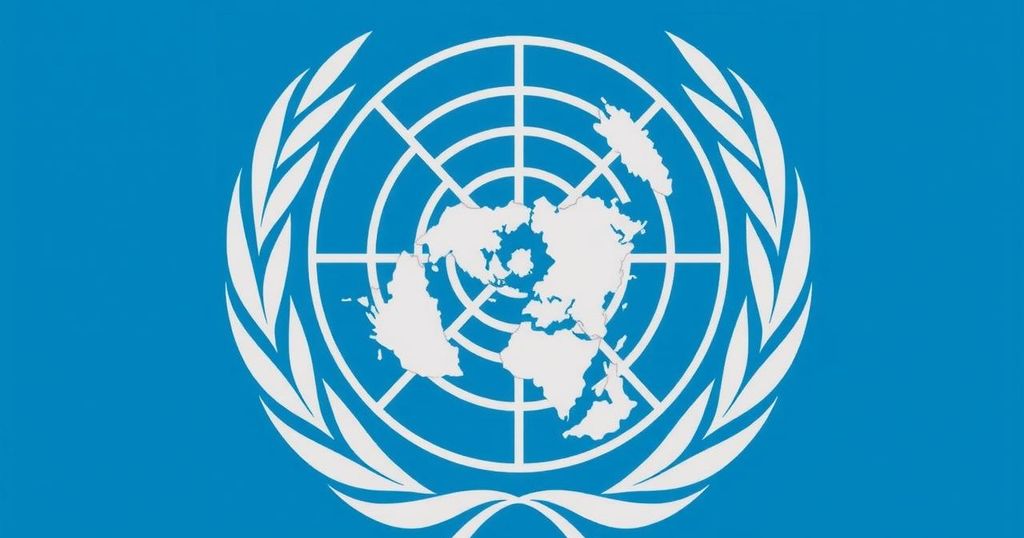Global news
Politics
AFRICA, ANTONIO GUTERRES, AP, CUBA, DEMOCRACY, HAITI, INTERNATIONAL RELATIONS, JAMAICA, KENYA, MARIA ISABEL SALVADOR, MILITARY, NORTH AMERICA, SECURITY, SECURITY COUNCIL, TRANSITIONAL COUNCIL, U, N, U. N, U. N. SECRETARIAT, U. N. SECURITY COUNCIL, U. S, UN, UNITED NATIONS, UNITED STATES, WEST AFRICA, WILLIAM RUTO
Leila Ramsay
0 Comments
US Intensifies Efforts to Establish UN Peacekeeping Force in Haiti
The United States is increasing efforts to convert the Kenya-led force in Haiti into a U.N. peacekeeping mission amidst rising gang violence. Initial proposals were made in September for U.N. support to address underfunding issues. The situation has worsened significantly, with gangs controlling much of Port-au-Prince. Despite backing from some nations, key members like Russia and China have expressed concerns, complicating the transformation process.
The United States has intensified its efforts to transition the Kenya-led multinational force in Haiti into a U.N. peacekeeping mission, prompted by a surge in gang violence that recently halted all air traffic to Port-au-Prince. The U.S. initially proposed a U.N. peacekeeping mission in September as a solution to secure necessary funding for the international force that aids Haiti’s police in combating rampant gang activity, currently suffering from a severe budget shortfall. The violence has escalated significantly, particularly after Haiti’s transitional government dismissed the interim prime minister amid political turmoil, leading gangs to seize control of 85% of Port-au-Prince and disrupt the nation’s primary airport. To advance plans for the shift to a U.N. force, the U.S. sought unanimous support from the U.N. Security Council, tasking Secretary-General António Guterres to begin contingency preparations. However, discussions have faced resistance, particularly from Russia and China, who expressed reservations about this transition. Russia has called for an open briefing followed by closed consultations to assess the situation in Haiti. The Kenya-led mission currently lacks the full contingent of 2,500 police as only approximately 430 are deployed, emphasizing the urgent need for more resources to fulfill its mandate. Financial support for this initiative remains critically low, with the U.N. trust fund having received only $85.3 million out of a pledged $96.8 million, whereas costs are projected to reach $600 million for a fully operational force. This funding dilemma reflects the uncertainty that will accompany the transition to a U.N. peacekeeping force, especially in light of concerns regarding ongoing support from future U.S. administrations. Haiti has seen a dramatic increase in gang power since the assassination of President Jovenel Moïse in 2021, resulting in rampant violence. While some segments of the Haitian populace welcomed the Kenyan force, others remain wary due to historical precedents of foreign military intervention in Haiti, notably the 2004-2017 U.N. mission, which was marred by allegations of misconduct and disaster.
The situation in Haiti has escalated dramatically due to gang violence, exacerbated by political instability following the assassination of former President Jovenel Moïse. Gangs currently control a significant portion of the capital, Port-au-Prince, leading to considerable disruptions in daily life and the functioning of government. The international community, particularly through the U.S. leadership, has become increasingly engaged in efforts to restore order and support the Haitian National Police through proposed U.N. peacekeeping missions, reflecting historical patterns of foreign intervention in the nation.
In conclusion, the United States is actively working to shift the Kenyan-led multinational force in Haiti towards a U.N. peacekeeping operation in response to escalating violence from gangs. Despite some international support, challenges remain regarding funding and consensus among Security Council members. The historical context of such interventions raises concerns among the Haitian populace as both the U.S. and the U.N. weigh options to restore stability in the region.
Original Source: apnews.com




Post Comment